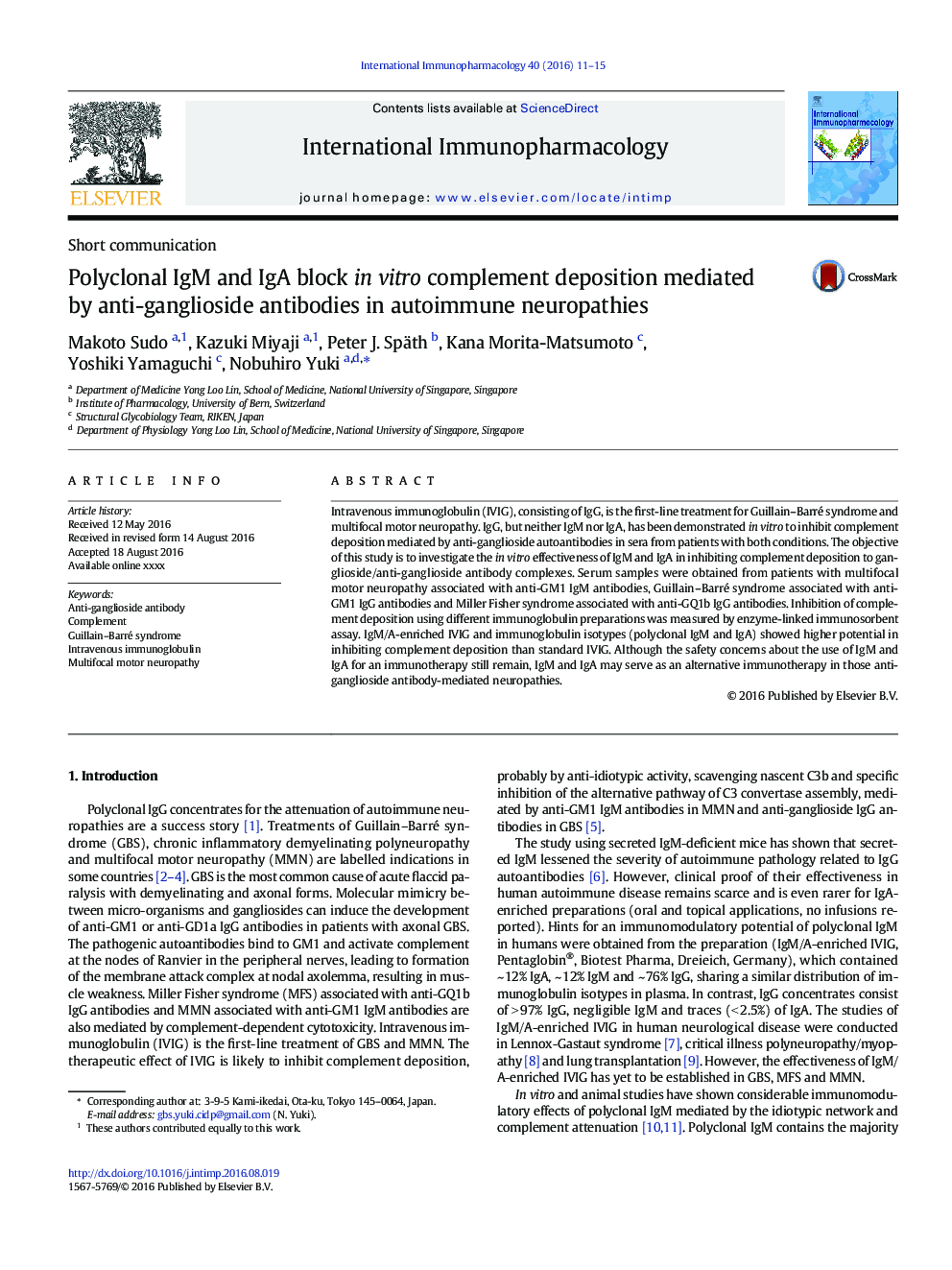| Article ID | Journal | Published Year | Pages | File Type |
|---|---|---|---|---|
| 2540150 | International Immunopharmacology | 2016 | 5 Pages |
•We studied the in vitro efficacy of IgM/IgA in inhibiting complement deposition.•IgM and IgA were more effective at inhibiting complement deposition than IVIG.•IgM/A-rich IVIG was more effective at inhibiting complement deposition than IVIG.•IgM and IgA serve as an alternative immunotherapy in GBS and MMN.
Intravenous immunoglobulin (IVIG), consisting of IgG, is the first-line treatment for Guillain–Barré syndrome and multifocal motor neuropathy. IgG, but neither IgM nor IgA, has been demonstrated in vitro to inhibit complement deposition mediated by anti-ganglioside autoantibodies in sera from patients with both conditions. The objective of this study is to investigate the in vitro effectiveness of IgM and IgA in inhibiting complement deposition to ganglioside/anti-ganglioside antibody complexes. Serum samples were obtained from patients with multifocal motor neuropathy associated with anti-GM1 IgM antibodies, Guillain–Barré syndrome associated with anti-GM1 IgG antibodies and Miller Fisher syndrome associated with anti-GQ1b IgG antibodies. Inhibition of complement deposition using different immunoglobulin preparations was measured by enzyme-linked immunosorbent assay. IgM/A-enriched IVIG and immunoglobulin isotypes (polyclonal IgM and IgA) showed higher potential in inhibiting complement deposition than standard IVIG. Although the safety concerns about the use of IgM and IgA for an immunotherapy still remain, IgM and IgA may serve as an alternative immunotherapy in those anti-ganglioside antibody-mediated neuropathies.
